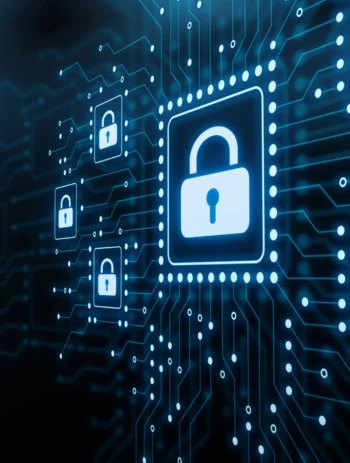One of the simplest—and most overlooked—security threats in any office is weak passwords. They might seem harmless, but bad passwords are like leaving the front door unlocked. All it takes is one compromised login to give hackers access to sensitive data, client information, or internal systems. The good news? It’s one of the easiest problems to fix. It starts with … [Read more...] about Banish Bad Passwords
cybersecurity
The Future of Medical Office Management: How AI Can Simplify Your Workload
If you’re working in medical office administration, learning to use AI can significantly improve your workflow and enhance patient care. Here are some practical ways to get started with AI in your role: 1. Learn the Basics of AI in Healthcare Begin by understanding what AI is and how it’s applied in healthcare. There are plenty of free online courses that introduce AI … [Read more...] about The Future of Medical Office Management: How AI Can Simplify Your Workload
How AI is Transforming Cybersecurity for the Healthcare Industry
As a medical office manager, you already know how important it is to protect sensitive patient data. From electronic health records (EHRs) to billing information, your practice handles an incredible volume of private and confidential data every day. Unfortunately, healthcare remains one of the top industries targeted by cybercriminals. But here’s some good news: artificial … [Read more...] about How AI is Transforming Cybersecurity for the Healthcare Industry
5 strategies for safeguarding patient confidentiality
In the healthcare industry, protecting patient confidentiality and safeguarding sensitive medical information are paramount responsibilities. As a medical office manager, fostering a robust workplace security culture is essential to ensure compliance with regulations such as HIPAA (Health Insurance Portability and Accountability Act) and to maintain the trust and confidence of … [Read more...] about 5 strategies for safeguarding patient confidentiality
It’s Cybersecurity Awareness Month: Protecting patient data in a digital world
As a medical office manager, you play a crucial role in safeguarding sensitive patient information in an increasingly digital landscape. October is Cybersecurity Awareness Month, making it an ideal time to revisit your cybersecurity practices, ensure compliance with regulations, and raise awareness among your staff about potential cybersecurity risks. Here’s how you can … [Read more...] about It’s Cybersecurity Awareness Month: Protecting patient data in a digital world
9-point checklist for medical office cybersecurity
Is your office doing all it can to protect your patients' sensitive medical data? Here's a nine-point checklist to protect the security and privacy of your patients. Use strong, unique passwords for all accounts and change them regularly. Enable two-factor authentication (2FA) for added security. Keep all software and systems up to date with the latest security … [Read more...] about 9-point checklist for medical office cybersecurity
Quiz: How well do you manage passwords?
Did you know that most confirmed data breaches involve the leveraging of weak, stolen, or default passwords? One of your practice’s frontline defenses for avoiding the phishing attacks and other cybercriminal schemes is effective password management. How well are you managing yours? Take this quiz from Michael J. Sacopulos, JD, founder and CEO of the Medical Risk … [Read more...] about Quiz: How well do you manage passwords?
Our staff fell for a cyber attack
By Lynne Curry Question: Four of our staffers fell for a cyber attack last week. They opened an email attachment they thought originated from our HR department, which regularly emails policy updates to all staff. This email had the subject line: Changes to Vacation Policies. Even though we’ve trained our staff members not to click on suspicious emails, and certainly … [Read more...] about Our staff fell for a cyber attack
7 tips for leading a video meeting
We’ve become accustomed to attending work meetings on Zoom and other video conferencing platforms in the last few years. But you might not be at ease as the leader of a Zoom meeting for your medical office team. Here are some tips for conducting a successful video work meeting: Set a clear agenda: Before the meeting, create an agenda that outlines the topics to be … [Read more...] about 7 tips for leading a video meeting
Are former staffers still accessing your office’s accounts?
High staffing turnover continues, and the cybersecurity threat to employers is real. In a recent study, phishing-resistant multi-factor authentication (MFA) provider Beyond Identity gathered responses from former employees across the United States, the United Kingdom, and Ireland and found a vast majority of employees (83%) admitted to maintaining continued access to … [Read more...] about Are former staffers still accessing your office’s accounts?









